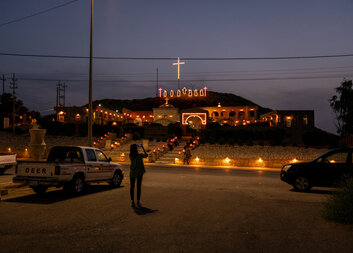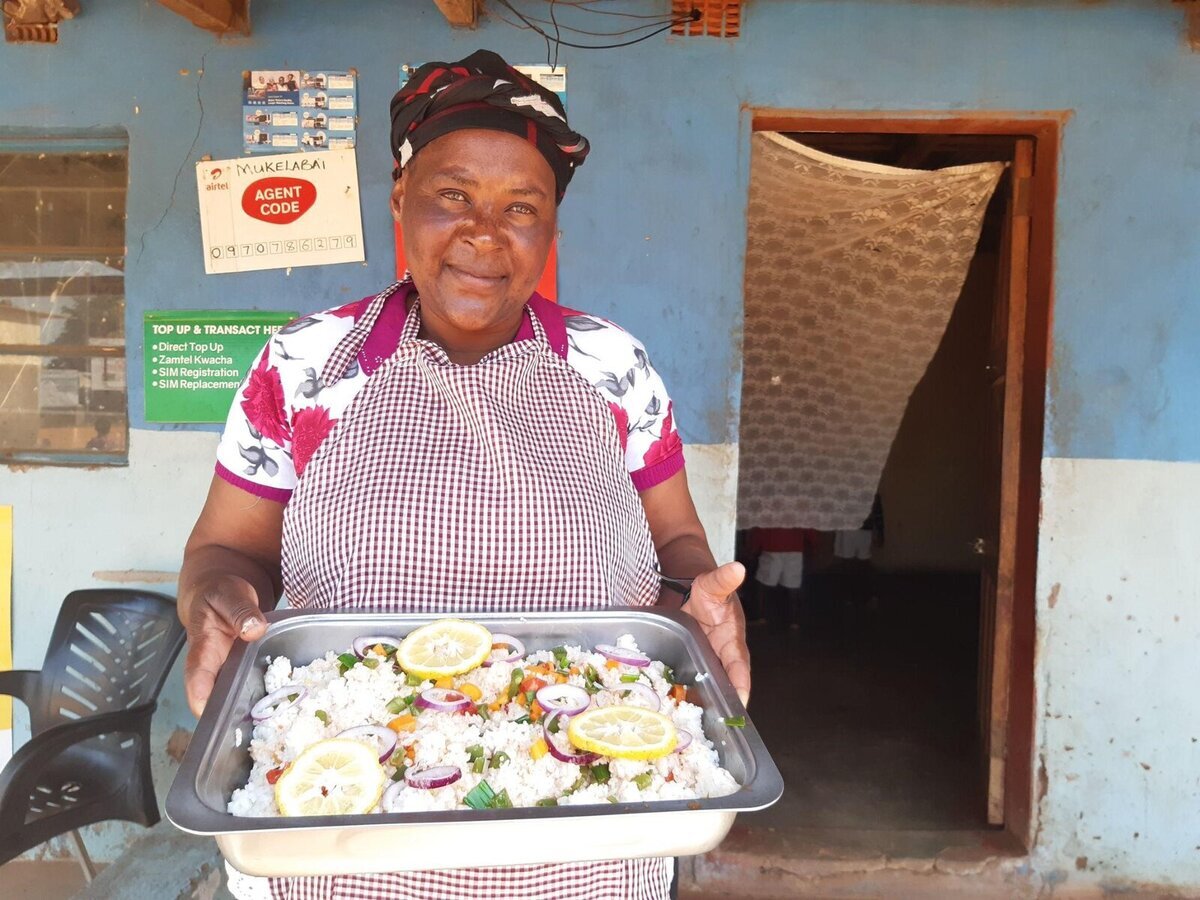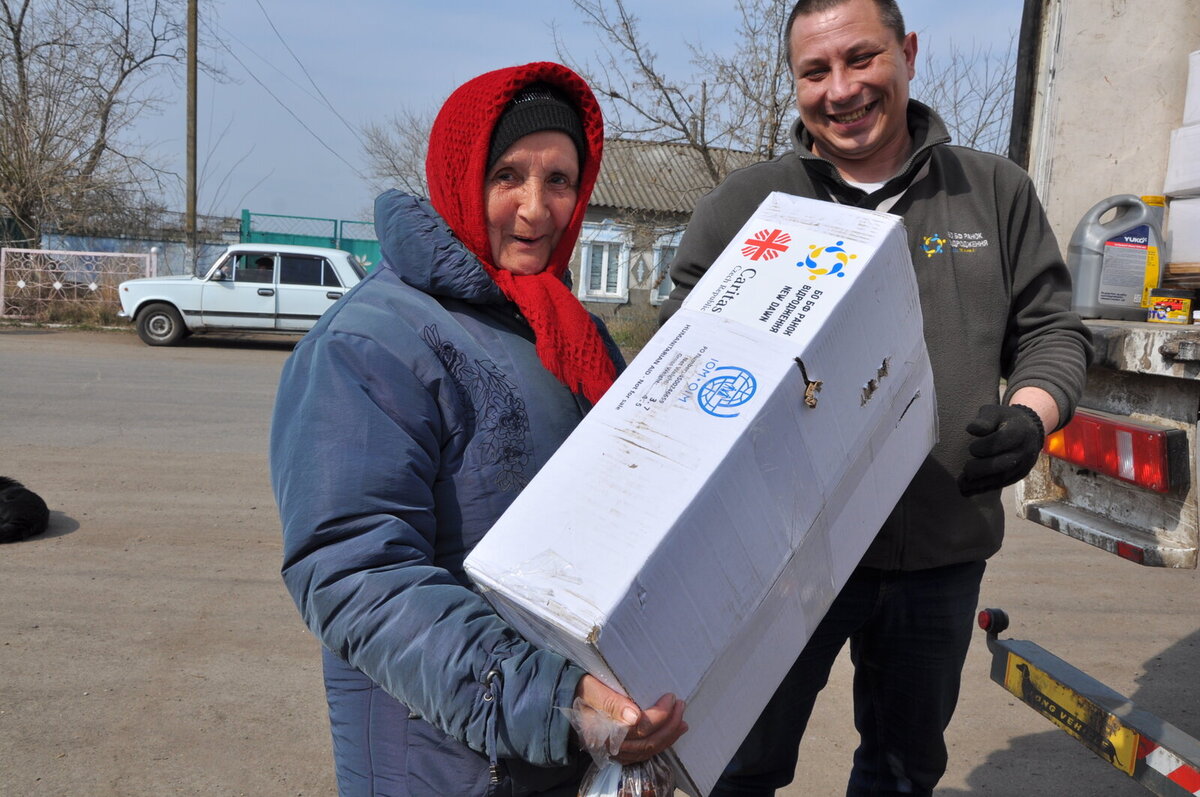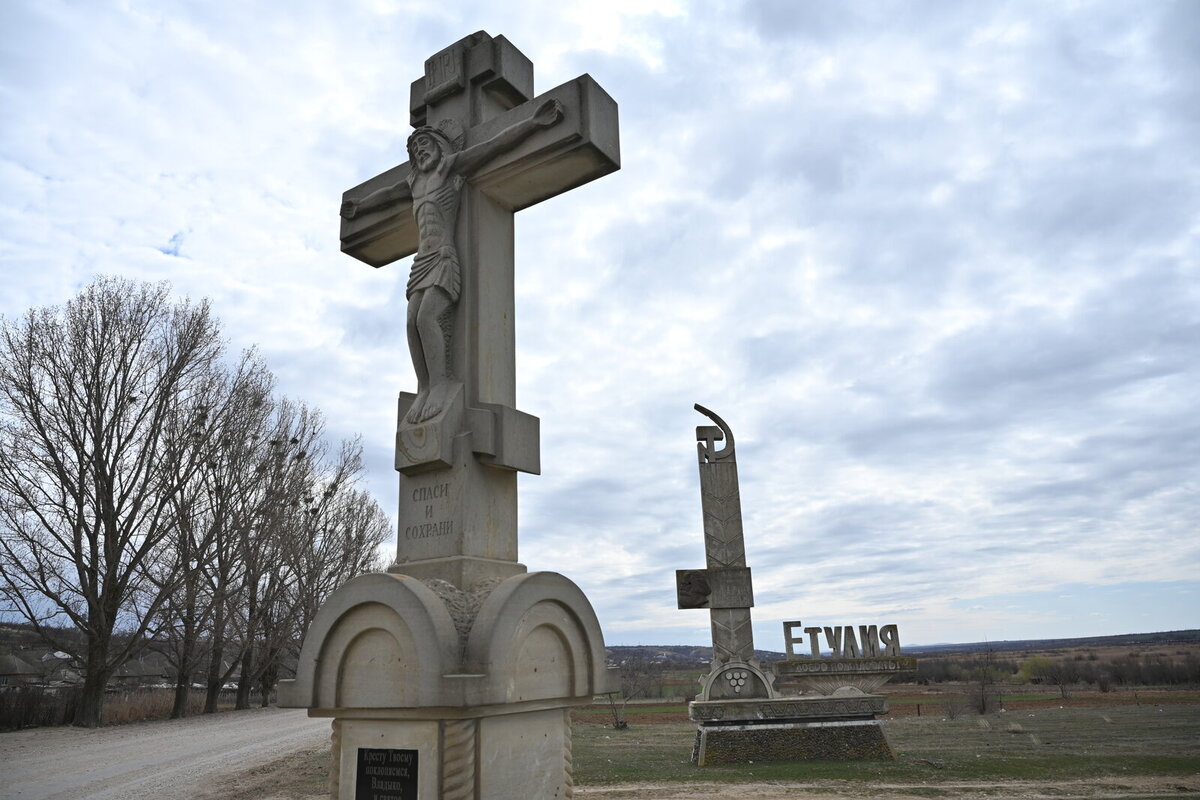Christmas is a time of giving - and not just under the tree. All over the world, people come together to give joy, hope and help to those who need it most. Did you know that in Georgia, carolers collect gifts for the less fortunate during the Alilo procession, while children in Zambia bring gifts to their peers in hospitals? Or that in Moldova, Moș Crăciun brings gifts on New Year's Day? We bring you 7 unique Christmas gift-giving and other traditions from countries where Caritas Czech Republic supports people in need.
1. In Zambia, children learn generosity from a young age
Imagine the joy on a child’s face as they give a treasured item to someone in need. In Zambia, where Christmas is a deeply religious holiday, this act of selflessness is a cherished tradition. Families dress in their best clothes and attend church services, where children are encouraged to bring gifts to share with less fortunate peers. Often, these gifts are distributed to children in hospitals and impoverished communities, embodying the spirit of charity and inclusiveness.
The celebrations do not stop there. Zambians return to their homes for lively feasts, traditional dances, and community gatherings, sharing what they have with neighbours. Even though material gifts are uncommon due to economic constraints, the true essence of giving lies in the food and love shared during the festivities and by giving back to their local community.
Namenda, a restaurant owner in the Mayukwayukwa refugee settlement supported by Caritas Czech Republic, shares that spirit. “I love my job because I like feeding people. I make sure that I cook quality food that everyone loves to eat,” says Namenda. Through Caritas Czech Republic’s grant, Namenda was able to own her own business and give back to her community through food, mirroring the generosity of Zambian Christmas traditions.
2. Christians in Iraq are preserving traditions and rebuilding lives
This year, 2024, marks a sad milestone—ten years since the invasion of ISIS and their persecution of minorities in Iraq. The Christian community, concentrated mainly in the northern towns of the Nineveh Plains, such as Qaraqosh, Bartella, and Alqosh, has faced persecution for their faith for centuries. Their celebrations, including Christmas, were often marked by caution. Many Christians were forced to flee their homes, seeking refuge in neighboring countries or relocating within Iraq. Although a significant number of families have emigrated permanently, those who chose to return are now working tirelessly to rebuild their homes, communities, and traditions. Including Christmas traditions.
"When I visited Iraq this year, I was invited to at least three Christian celebrations. The entire town would gather for processions, singing, playing games, and sharing grape juice. Children ran around joyfully, and I even received a small gift—a wooden symbol of the monastery where the event was held," recalls Irena Menšíková, editor of Foreign Topics at Caritas Czech Republic.
3. Georgia’s Alilo procession brings gifts for people in need
Did you know that in Georgia, carolers do not just sing for joy—they also gather gifts for those in need? The Alilo procession takes places on Christmas Day, which Georgians celebrate on the 7th of January. The procession sees participants walk through streets with icons and carols. As people march through Georgian cities, they collect food, sweets, and small presents. These donations are brought to churches, where they are later distributed to children, hospital patients, and elderly people.
Dating back to the 5th century, the Alilo tradition embodies the true meaning of Christmas. The streets of Georgian cities come alive with music and joy, while the donations collected remind us that even the smallest gifts can bring immense happiness to those in need.
4. Ukraine shows resilience in the face of adversity
Christmas in Ukraine has long been marked by rich traditions, including the twelve-course Sviata Vecheria dinner and the singing of Koliadky (Christmas carols). Historically celebrated on January 7th according to the Julian Calendar, last year saw many Ukrainians shifting their celebrations to December 25th. This change was not merely about dates; it symbolised its national independence amid ongoing conflict.
This year, however, Christmas has taken on a different focus. The war continues to shape daily life, with many families experiencing their third holiday season amidst conflict. Despite the challenges, Ukrainians remain determined to honour their traditions. People in Ukraine prepare gifts not only for their children but also actively send parcels to their relatives and friends who have joined the ranks of the defenders and will spend their Christmas time at the front.
Organisations like Caritas Czech Republic have stepped in, rallying communities both locally and internationally to provide vital aid. Warm clothing, essential supplies, and gifts for children have become the focal point of holiday efforts, embodying the spirit of Christmas through collective action.
5. Mongolia’s Tsagaan Sar is full of generosity
In Mongolia, the Lunar New Year feels like Christmas with its focus on family, food, gifts, and a celebration where everyone gets together — except the host not only prepares a grand meal but also gives a gift to every visitor. Known as Tsagaan Sar, this unique tradition reflects the same warmth and hospitality found in Christmas celebrations but emphasises the importance of meaningful gifts for every guest.
Practical gifts such as clothing, food, or sweets are common, symbolising goodwill and care. Tsagann Sar is also a time to honor elderly peoples in the community by visiting older family members and offering them gifts as well as words of respect. For the elderly people, these acts of respect and kindness hold special significance, reminding us of the power of small gestures to strengthen community bonds. Additionally, people will visit the graves of their ancestors and leave offerings of food and drink.
6. Christmas spirit survives in the midst of hardship in Syria
In Syria, Christmas remains a symbol of hope and community, even after years of devastating conflict. For Orthodox Christian families, cherished traditions like children leaving their shoes out on Christmas Eve for the Wise Men’s smallest camel to fill with gifts continue to thrive, despite profound challenges.
The prolonged war has displaced millions and led to a steady decline in Syria’s Christian population. Once-vibrant celebrations in towns like Aleppo and Maaloula have quieted as many families have emigrated or been uprooted. Yet, those who remain have turned their holiday observances into powerful acts of resilience. Reconstructed churches echo with prayers, modest gifts are exchanged, and communities find strength in their shared faith.
Last year, in solidarity with the victims of bombings in Gaza, Christian leaders from various denominations—including the Syriac Catholic, Greek Orthodox, Syriac Orthodox, and Melkite Greek Catholic churches—chose to forgo festive celebrations. Instead, they focused on charity and prayer. Churches organised relief efforts, offering food, clothing, and gifts to struggling families, embodying the essence of the season. While scaled-down, these celebrations reflect an enduring spirit of compassion and perseverance.
7. In Moldova, Moș Crăciun brings gifts on New Years
In Moldova, Christmas traditions take a slightly different form. Moș Crăciun, the Moldovan Santa Claus, visits children on New Year’s Day rather than Christmas. Children, often with the help of parents or teachers, write letters asking for a single special gift. Rooted in a history of widespread poverty, this tradition emphasises modesty, with Moș Crăciun bringing practical gifts like clothing, sweets, or small toys.
In the past years, Moldova’s spirit of giving extended beyond its borders. As Ukrainian refugees sought safety in the country, Moldovan families opened their homes, sharing what little they had. Caritas Czech Republic worked alongside local communities to provide essential aid such as warm clothing, food, and shelter—reflecting the true meaning of Christmas.
The generosity of Moldovans, many of whom continue to face economic challenges themselves, is a testament to the power of empathy and community. Their actions remind us that even small gestures can have a profound impact.
The universal spirit of giving
The customs described above illustrate how the spirit of charitable giving transcends cultural and religious boundaries. These stories demonstrate that the true essence of Christmas lies not in material wealth but through meaningful giving. Whether it is through donating food in Zambia, giving gifts to visitors in Mongolia, or supporting those in need in Ukraine, these traditions reflect a universal desire to help others.
At Caritas Czech Republic, we believe in the transformative power of small acts of kindness. This holiday season let’s celebrate these global traditions and the shared humanity that inspires us to give.
Join us in helping people in need
Would you like to give your loved ones a gift this Christmas that will both delight and help? Donate a Meaningful Gift. You'll both make people happy and help people in need get back on their feet. You can choose from Women empowerment, Humanitarian food kit, Beekeeping Course or School Supplies.















